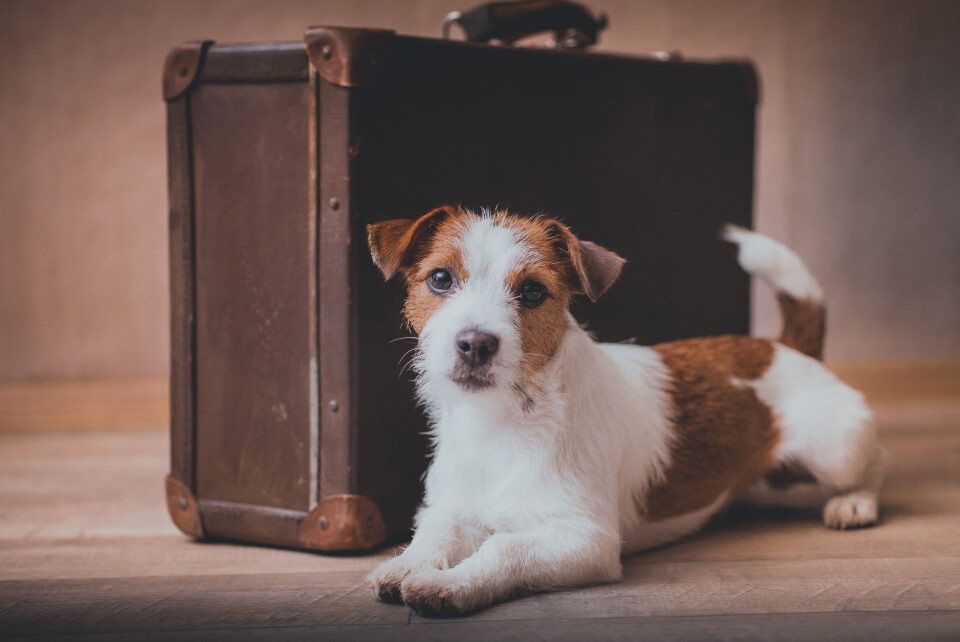-
Grand crème, café crème, au lait: how to order coffee in France?
We explain the subtle distinctions between the various terms used in cafés
-
Flights to and from France not expected to be affected by Gatwick Easter strike
Travellers are still advised to check their flight details this weekend
-
People in France snubbing US travel, report travel agents
The political context, weak euro against the dollar, and border issues have all been blamed
Which non-EU countries are ‘exempt’ from the EU’s pet travel rules?
There are four possibilities as to how a country is treated in terms of pet health and identification requirements; we explain

Reader question: I have heard that some non-EU countries are granted exemption from the EU’s pet entry rules. Which are they and how does this work?
There is no ‘exemption’ as such but not all non-EU countries are subject to the same requirements.
Firstly, for pet travel purposes Norway and Northern Ireland are treated as part of the EU, the latter due to rules in the Northern Ireland Protocol section of the Brexit Withdrawal Agreement.
This means that residents of Norway and Northern Ireland can obtain EU pet passports to use for entry to the EU. As this does not apply to mainland Britain, residents of Great Britain need an Animal Health Certificate (AHC) to visit Northern Ireland with their pet, as it has effectively remained in the EU for pet movement purposes.
Other than these two cases, the status of non-EU countries comes down to whether they are ‘listed’ by the EU under ‘part one’ or ‘part two’ of Annex II of a regulation from 2013.
According to a linked piece of legislation from the same year(article 13) countries can be put on part one if they confirm they will implement animal health and transport rules that are identical to the EU’s in several key areas.
Countries can be put on part two if they make a more limited pledge to meet certain standards on rabies control.
The UK, and many other non-EU countries, such as the US, Australia and Canada, is on part two.
Read also: Stress at the border as UK pet passport is rejected on leaving France
The only countries currently on part one are those that have very close EU links, including European Economic Area countries (Liechtenstein, Iceland), Switzerland, which is in the EU single market; European microstates such as Monaco and the Vatican, which are surrounded by France or Italy; and Greenland and the Faroe Islands, which are both part of the Kingdom of Denmark, an EU state.
The UK asked to be put on part one, arguing that it has high standards in animal health rules but the EU refused. The UK has continued to take the position that it merits inclusion on part one.
However, EU Commission sources told The Connexion that part one is similar to a ‘Schengen area for pets’ and is only given to countries that agree to actively keep their rules in line with the EU’s with regard to animal health, which they said the UK does not.
Read also: Are guide dogs still allowed to travel between UK and France?
What is the effect of the different forms of listing?
Countries on part one can issue their own pet passports that are recognised by the EU, simplifying pet travel between them and the EU. In the UK pre-Brexit, pet passports used to cost around £60 to organise and lasted for 28 trips.
Countries on part two cannot issue recognised pet passports. Instead, pet owners need to visit a vet before each trip into the EU, to obtain an Animal Health Certificate, costing around £100 or more, for example, in the UK. They need to see a vet within the 10 days before they are due to travel and the certificate must be signed off by an ‘official veterinarian’ qualified to do so (not all vets have this).
Finally, ‘unlisted’ countries have the same process as those on part two but owners also have to arrange for the pet to have a rabies test with an EU-approved laboratory before the trip. They then have to wait at least three months from the date of when the sample was taken before travelling (if the test is negative).
Read more
Do France’s new pet owner ‘contracts’ have any actual weight?
English-speaking animal rescue charity in France appeals for helpers
What would UK-EU ‘Swiss-style’ relationship mean for Britons in bloc?
























